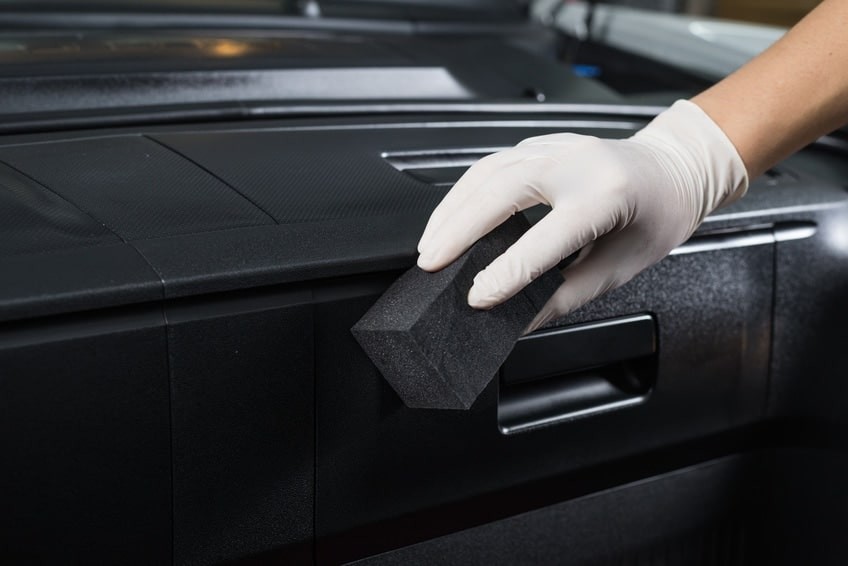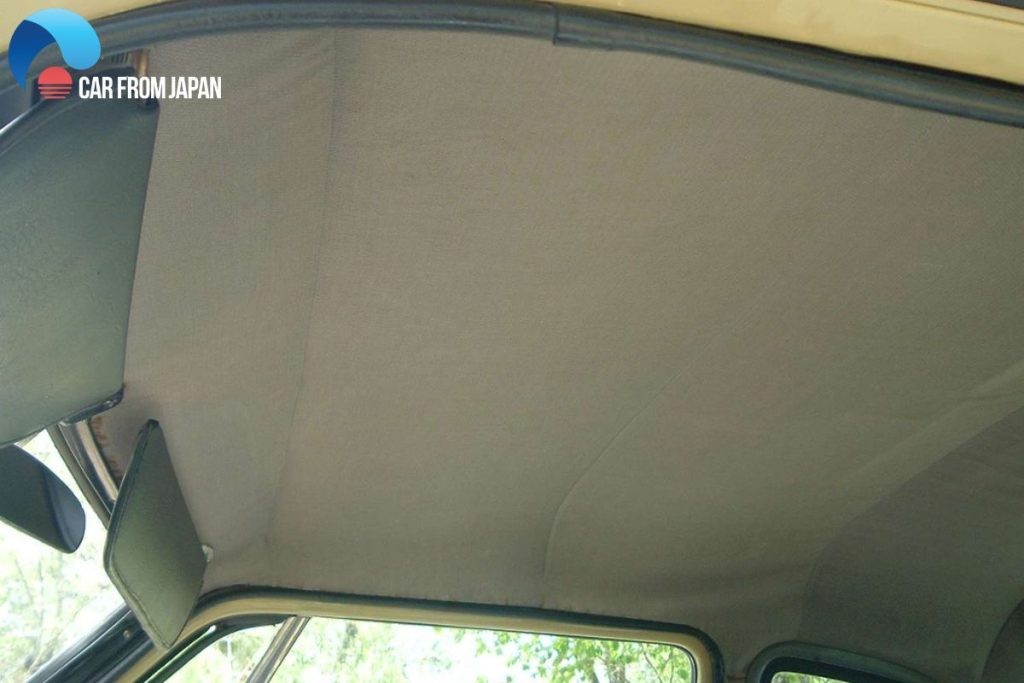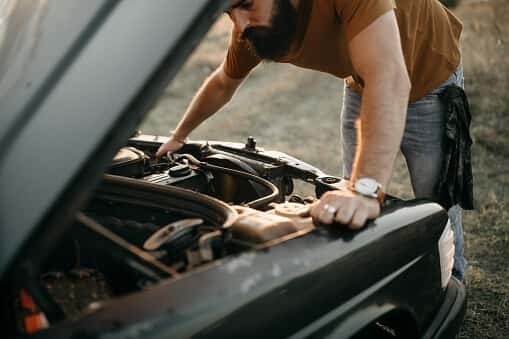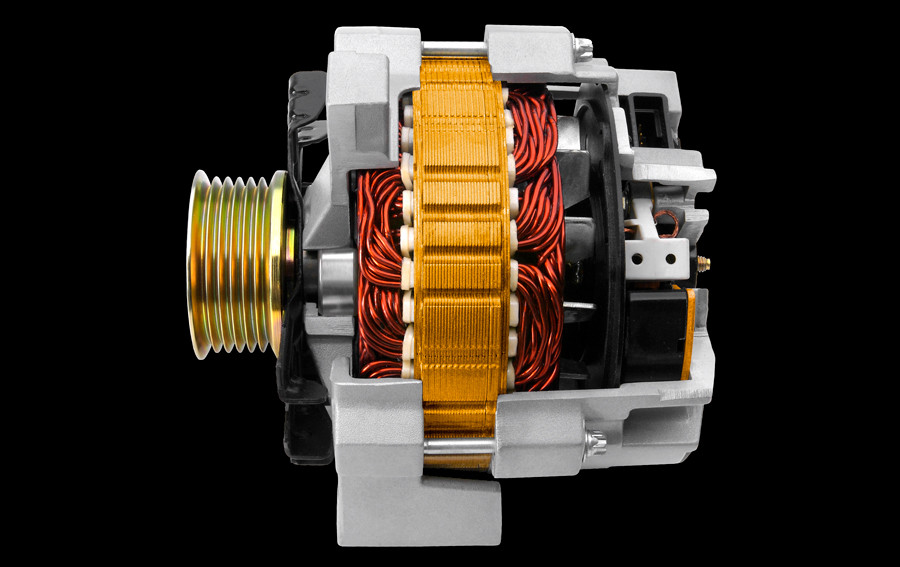Can You Get A Check Instead Of Fixing My Car?
Can you get a check instead of fixing your car? Absolutely, this is a common scenario, and understanding your options is essential. At CARDIAGTECH.NET, we empower you with the knowledge to make informed decisions about your vehicle. Explore alternatives to repairs and discover how you can potentially receive compensation. This involves navigating insurance claims, understanding diminished value, and exploring repair options.
1. Understanding Your Options: Cash vs. Car Repair
When your car needs fixing after an accident or due to mechanical issues, you might wonder, “Can I get a check instead of fixing my car?” The answer is often yes, but it depends on various factors, primarily involving your insurance company and the specifics of your situation.
1.1. Insurance Claims and Settlement Checks
After an accident, you typically file a claim with your insurance company. The insurer assesses the damage and provides an estimate for the necessary repairs. Instead of directly paying the repair shop, you usually have the option to receive a settlement check.
- Scenario 1: Working with Your Insurance Company
- You file a claim.
- The insurance adjuster assesses the damage.
- You receive an estimate for repairs.
- You can request a check for the repair amount.
- Scenario 2: Dealing with the Other Driver’s Insurance
- The other driver is at fault.
- Their insurance company handles the claim.
- You go through their assessment process.
- You can negotiate for a settlement check.
1.2. Considerations Before Choosing a Cash Settlement
Before you jump at the opportunity to get a check instead of fixing your car, consider these points:
- Damage Extent: Is the damage minor or severe?
- Car Value: How much is your car worth?
- Legal Implications: Are there legal requirements to repair the vehicle?
- Personal Needs: Do you need the car fixed immediately?
Alt text: Car damage assessment by an insurance adjuster for settlement estimate.
2. Negotiating with Insurance Companies for a Fair Settlement
Negotiating with insurance companies can be challenging, but with the right approach, you can secure a fair settlement. Here’s how to handle the negotiation process effectively.
2.1. Documenting the Damage and Gathering Estimates
The first step is to meticulously document all the damage. This includes:
- Taking Photos: Capture clear, high-resolution images of all damaged areas.
- Obtaining Multiple Estimates: Get repair estimates from several reputable auto repair shops.
| Aspect | Description |
| ----------------- | --------------------------------------------------------------------------------------------------------------- |
| Photos | Clear, detailed images of all damage from various angles. |
| Repair Estimates | At least three estimates from different shops, detailing parts and labor costs. |
| Police Report | A copy of the police report if the damage resulted from an accident. |
| Medical Records | If injuries were involved, include relevant medical records and bills. |
| Lost Wages | Documentation of any lost wages due to the incident or injuries. |
| Car Maintenance Records | Records showing the condition of the car before the damage can strengthen your negotiation position. |2.2. Understanding Diminished Value
Diminished value is the reduction in your car’s market value after it has been repaired from significant damage. Even with perfect repairs, a car with a history of accidents is worth less than a similar car with no accident history.
- Inherent Diminished Value: The automatic loss in value due to the accident history.
- Repair-Related Diminished Value: Loss in value due to substandard repairs.
- Claim-Related Diminished Value: Loss in value due to the inconvenience and stigma associated with the claim.
2.3. Presenting Your Case to the Insurance Adjuster
When presenting your case, be professional, organized, and persistent.
- Provide Comprehensive Documentation: Include photos, repair estimates, and any other relevant documents.
- Highlight Diminished Value: Clearly state your claim for diminished value, providing evidence to support your claim.
- Know Your Rights: Familiarize yourself with your state’s laws regarding insurance claims and diminished value.
Alt text: Person negotiating car damage settlement with insurance adjuster.
3. Legal and Financial Implications of Taking a Cash Settlement
Taking a cash settlement instead of fixing your car has several legal and financial implications that you should consider carefully.
3.1. Potential Tax Implications
Generally, insurance settlements for car repairs are not taxable because they are intended to cover a loss, not generate income. However, there are exceptions:
- If the Settlement Exceeds the Actual Loss: If the settlement amount is more than the actual repair costs and the fair market value of your vehicle, the excess amount might be considered taxable income.
- Personal Injury Component: If the settlement includes compensation for personal injuries, that portion may also be tax-exempt.
- Business Use: If the vehicle is used for business purposes, the tax implications can be more complex, and it’s advisable to consult a tax professional.
3.2. Impact on Future Insurance Rates
Filing a claim can affect your future insurance rates, regardless of whether you take a cash settlement or have the car repaired.
- At-Fault Accidents: If you are at fault, your rates will likely increase because the insurance company has to pay out for the damages.
- Not-At-Fault Accidents: In many states, your rates should not increase if you are not at fault. However, some insurers might still raise your rates slightly upon renewal.
- Comprehensive Claims: Claims for incidents like hail damage or theft might affect your rates, depending on your insurance company and state laws.
3.3. Obligations to Repair the Vehicle
In some cases, you might have a legal or contractual obligation to repair the vehicle, especially if the damage affects its safety or roadworthiness.
- Leased Vehicles: Lease agreements typically require you to maintain the vehicle in good repair. Taking a cash settlement and not fixing the car could violate your lease terms.
- Financed Vehicles: If you have a loan on the car, the lender might require you to use the settlement to repair the vehicle to protect their investment.
- State Laws: Some states have laws requiring vehicles to meet certain safety standards. If the damage affects these standards, you might be legally obligated to repair the car.
Alt text: Analyzing financial documents for car repair settlement.
4. Alternative Uses for the Cash Settlement
If you decide to take a cash settlement instead of repairing your car, you have several options for how to use the money.
4.1. Applying the Funds to a New Vehicle
One common option is to use the settlement money as a down payment on a new or used vehicle. This can be a practical choice if your current car is significantly damaged or if you were considering upgrading anyway.
- Pros:
- Allows you to get a newer, potentially more reliable car.
- Avoids the hassle and potential issues of repairing a damaged vehicle.
- Cons:
- Requires additional funds if the settlement doesn’t cover the full cost of the new vehicle.
- You might incur new loan payments or higher insurance costs.
4.2. Investing the Settlement
Another option is to invest the settlement money. Depending on your financial goals and risk tolerance, you could invest in stocks, bonds, mutual funds, or other investment vehicles.
- Pros:
- Potential for long-term growth and financial security.
- Can help you achieve other financial goals, such as retirement savings or a down payment on a home.
- Cons:
- Investment returns are not guaranteed and can fluctuate with market conditions.
- Requires careful planning and potentially professional advice.
4.3. Paying Off Debt
Using the settlement to pay off high-interest debt, such as credit card balances or personal loans, can provide immediate financial relief and save you money on interest payments in the long run.
- Pros:
- Reduces your overall debt burden and improves your credit score.
- Frees up cash flow by eliminating or reducing monthly debt payments.
- Cons:
- Doesn’t address the underlying issue of the damaged car.
- Might not be the best use of funds if you have low-interest debt or other pressing financial needs.
4.4. Performing DIY Repairs
If you have the skills and knowledge, you could use the settlement money to perform DIY repairs on your car. This can be a cost-effective option, but it’s important to be realistic about your abilities and the complexity of the repairs.
- Pros:
- Can save money on labor costs.
- Allows you to customize the repairs to your specific needs.
- Cons:
- Requires time, effort, and technical skills.
- If repairs are not done correctly, it could lead to further damage or safety issues.
Alt text: Diagram showing alternative uses for car repair settlement funds.
5. Steps to Take If You Decide to Keep the Money
If you decide to keep the cash settlement and not repair your car, there are several steps you should take to protect yourself and ensure you’re making an informed decision.
5.1. Informing Your Insurance Company
Always inform your insurance company of your decision to keep the money. This ensures transparency and avoids potential issues down the road.
- Document Everything: Keep a written record of all communications with your insurance company.
- Get Confirmation: Obtain written confirmation from the insurer that they are aware you are not repairing the vehicle.
5.2. Addressing Safety Concerns
If the damage affects the safety of your vehicle, it’s crucial to address these concerns.
- Consult a Mechanic: Have a trusted mechanic inspect the car and provide recommendations for necessary safety repairs.
- Prioritize Safety: Even if you’re not doing full repairs, address critical safety issues like brakes, lights, and structural damage.
5.3. Potential Resale Issues
Be aware that selling a damaged car can be more challenging and may result in a lower sale price.
- Disclose the Damage: Always disclose the damage to potential buyers.
- Be Realistic About Price: Understand that the car’s value is diminished and price it accordingly.
| Step | Description |
| ---------------------- | -------------------------------------------------------------------------------------------------------------- |
| Inform Insurer | Notify your insurance company in writing about your decision to keep the cash settlement. |
| Safety Inspection | Have a mechanic inspect the car for safety issues and address critical repairs. |
| Resale Disclosure | Disclose the damage to potential buyers and be realistic about the car’s diminished value. |
| Document Everything | Keep detailed records of all communications, inspections, and repairs. |
| Legal Consultation | Consult with an attorney to understand any legal obligations or liabilities. |5.4. Documenting All Decisions and Actions
Keep a detailed record of all decisions, communications, inspections, and repairs. This documentation can be invaluable if any issues arise in the future.
- Keep Records: Maintain copies of all documents, including insurance correspondence, repair estimates, inspection reports, and receipts.
- Organize Files: Store your documents in a safe and organized manner, both physically and digitally.
Alt text: Person organizing documents related to car repair decisions.
6. Understanding the Role of a Public Adjuster
A public adjuster is a professional who represents you, the policyholder, in negotiating a settlement with your insurance company. They can be particularly helpful in complex or disputed claims.
6.1. When to Consider Hiring a Public Adjuster
Consider hiring a public adjuster in situations such as:
- Complex Claims: When the damage is extensive or involves multiple types of losses.
- Disputed Claims: When you and the insurance company disagree on the extent of the damage or the amount of the settlement.
- Lack of Time or Expertise: When you don’t have the time or expertise to handle the claim yourself.
6.2. Benefits of Using a Public Adjuster
- Expertise: Public adjusters have in-depth knowledge of insurance policies and claims processes.
- Negotiation Skills: They are skilled negotiators who can advocate for your best interests.
- Time Savings: They handle the paperwork, communications, and negotiations, saving you time and stress.
6.3. How to Find a Reputable Public Adjuster
- Check Credentials: Ensure the adjuster is licensed and in good standing with your state’s insurance regulatory agency.
- Ask for Referrals: Seek recommendations from friends, family, or trusted professionals.
- Read Reviews: Check online reviews and testimonials to gauge the adjuster’s reputation.
Alt text: Public adjuster reviewing car damage claim documents.
7. The Impact on Your Car’s Resale Value
Choosing to take a cash settlement and not repair your car will undoubtedly affect its resale value. Understanding this impact is crucial before making a decision.
7.1. How Unrepaired Damage Affects Value
- Reduced Market Price: Buyers are generally willing to pay less for a car with visible damage.
- Difficulty Selling: Some buyers may be hesitant to purchase a damaged car at all.
- Negative Perception: Unrepaired damage can create a negative impression of the car’s overall condition and maintenance.
7.2. Strategies to Mitigate Value Loss
- Partial Repairs: Address critical safety issues to make the car more appealing to buyers.
- Detailed Documentation: Provide potential buyers with detailed information about the damage and any repairs you have made.
- Competitive Pricing: Price the car competitively to reflect its condition.
7.3. Disclosing Damage to Potential Buyers
Transparency is key when selling a damaged car.
- Legal Requirement: Many states require you to disclose any known damage to potential buyers.
- Ethical Obligation: Being upfront about the damage builds trust and avoids potential legal issues.
| Strategy | Description |
| ----------------------- | ------------------------------------------------------------------------------------------------------------------ |
| Partial Repairs | Address critical safety issues like brakes, lights, and structural damage. |
| Detailed Documentation | Provide potential buyers with comprehensive information about the damage and any repairs completed. |
| Competitive Pricing | Price the car competitively to reflect its condition and attract potential buyers. |
| Transparent Disclosure | Be upfront and honest about the damage, as required by law and ethical standards. |7.4. Using Online Valuation Tools
Online valuation tools can help you assess the car’s value in its current condition.
- KBB (Kelley Blue Book): Provides estimated values based on the car’s condition, mileage, and features.
- NADA Guides: Offers similar valuation services, taking into account the car’s damage and repair history.
Alt text: Using online tool to estimate car value after damage.
8. Navigating the Repair Process: Finding the Right Auto Repair Shop
If you decide to use the settlement to repair your car, finding a reliable auto repair shop is crucial.
8.1. Researching Local Repair Shops
- Online Reviews: Check online review sites like Yelp, Google Reviews, and the Better Business Bureau.
- Referrals: Ask friends, family, and colleagues for recommendations.
- Certifications: Look for shops with certifications from organizations like ASE (Automotive Service Excellence).
8.2. Obtaining Multiple Estimates
Get at least three repair estimates from different shops.
- Detailed Estimates: Ensure the estimates include a breakdown of parts and labor costs.
- Compare Quotes: Compare the estimates carefully, paying attention to the quality of parts and the shop’s reputation.
8.3. Verifying Credentials and Certifications
- ASE Certification: ASE-certified technicians have demonstrated their knowledge and skills in specific areas of auto repair.
- BBB Accreditation: Accreditation from the Better Business Bureau indicates the shop’s commitment to customer service and ethical business practices.
8.4. Understanding the Repair Warranty
- Warranty Coverage: Inquire about the shop’s warranty policy, including what is covered and for how long.
- Written Agreement: Get the warranty details in writing to protect yourself in case of future issues.
| Aspect | Description |
| ------------------------- | --------------------------------------------------------------------------------------------------------------- |
| Online Reviews | Check sites like Yelp, Google Reviews, and BBB for shop reputation. |
| Referrals | Seek recommendations from trusted friends, family, or colleagues. |
| ASE Certification | Look for shops with ASE-certified technicians, ensuring expertise and skill. |
| Detailed Estimates | Obtain detailed estimates with breakdowns of parts and labor costs for comparison. |
| Warranty Coverage | Inquire about warranty policies, including coverage details and duration, in writing. |Alt text: Comparing auto repair shop estimates and certifications.
9. CARDIAGTECH.NET: Your Partner in Auto Repair Solutions
At CARDIAGTECH.NET, we understand the challenges you face when dealing with car repairs. That’s why we offer a wide range of diagnostic tools and equipment to help you make informed decisions and ensure your vehicle is in top condition.
9.1. High-Quality Diagnostic Tools
Our selection of diagnostic tools includes:
- OBD-II Scanners: Quickly identify and diagnose engine and system issues.
- Code Readers: Retrieve diagnostic trouble codes (DTCs) for accurate troubleshooting.
- Multimeters: Test electrical circuits and components.
9.2. Benefits of Using CARDIAGTECH.NET Tools
- Accuracy: Our tools provide accurate and reliable diagnostic information.
- Efficiency: Identify problems quickly and efficiently, saving time and money.
- DIY Repairs: Empower yourself to perform basic repairs and maintenance.
9.3. Contact Us for Expert Advice
Need help choosing the right diagnostic tools? Our team of experts is here to assist you.
- Phone: +1 (641) 206-8880
- Address: 276 Reock St, City of Orange, NJ 07050, United States
- Website: CARDIAGTECH.NET
Alt text: CARDIAGTECH OBD-II scanner for car diagnostics.
10. Conclusion: Making the Right Decision for Your Vehicle
Deciding whether to take a cash settlement or repair your car is a personal choice that depends on your individual circumstances. By understanding your options, negotiating effectively with your insurance company, and considering the legal and financial implications, you can make the right decision for your vehicle and your financial well-being.
Remember, CARDIAGTECH.NET is here to support you with high-quality diagnostic tools and expert advice. Contact us today to learn more about how we can help you maintain your vehicle and make informed repair decisions.
10.1. Final Considerations
- Assess the Damage: Determine the extent of the damage and the cost of repairs.
- Evaluate Your Needs: Consider your transportation needs and financial situation.
- Seek Professional Advice: Consult with an attorney, financial advisor, or auto repair expert.
10.2. Contact CARDIAGTECH.NET for Assistance
For all your auto diagnostic needs, trust CARDIAGTECH.NET. Contact us today for expert advice and high-quality tools.
- Phone: +1 (641) 206-8880
- Address: 276 Reock St, City of Orange, NJ 07050, United States
- Website: CARDIAGTECH.NET
Alt text: Flowchart guiding car repair settlement decision.
FAQ: Can You Get a Check Instead of Fixing My Car?
1. Can I always get a check instead of fixing my car after an accident?
Whether you can get a check instead of fixing your car depends on your insurance policy and state laws. Generally, if you own the car outright, you have the right to receive a check for the repair amount. However, if you have a lease or loan on the car, the lender may require you to use the settlement to repair the vehicle.
2. How do I negotiate with the insurance company for a fair settlement?
To negotiate effectively, gather multiple repair estimates, document all damage with photos, and research the diminished value of your car. Present this information to the insurance adjuster, be persistent, and know your rights under state laws.
3. What is diminished value, and how does it affect my settlement?
Diminished value is the reduction in your car’s market value after it has been repaired from significant damage. You can claim diminished value from the at-fault party’s insurance company. Document the pre-accident value and post-repair value to support your claim.
4. Are there any tax implications if I receive a cash settlement?
Generally, insurance settlements for car repairs are not taxable. However, if the settlement exceeds the actual loss, the excess amount might be considered taxable income. Consult a tax professional for specific advice.
5. Will filing a claim affect my future insurance rates?
Filing a claim can affect your future insurance rates, especially if you are at fault. Not-at-fault accidents may also lead to slight rate increases in some states.
6. What should I do if the damage affects the safety of my vehicle?
Even if you choose to keep the cash settlement, address critical safety issues. Have a mechanic inspect the car and prioritize repairs to brakes, lights, and structural damage.
7. How does choosing to keep the money impact my car’s resale value?
Unrepaired damage will reduce your car’s resale value. Be transparent with potential buyers and disclose the damage. Price the car competitively to reflect its condition.
8. When should I consider hiring a public adjuster?
Consider hiring a public adjuster for complex or disputed claims, especially when you lack the time or expertise to handle the claim yourself.
9. How can CARDIAGTECH.NET help me with my auto repair needs?
CARDIAGTECH.NET offers high-quality diagnostic tools, such as OBD-II scanners and code readers, to help you accurately diagnose and troubleshoot car problems. Contact us at +1 (641) 206-8880 or visit CARDIAGTECH.NET for expert advice.
10. What alternative uses are there for the cash settlement besides repairing my car?
You can use the settlement money as a down payment on a new vehicle, invest it, pay off debt, or perform DIY repairs. Choose the option that best aligns with your financial goals and needs.
We at CARDIAGTECH.NET encourage you to reach out for personalized advice on the best diagnostic tools for your needs. Contact us at +1 (641) 206-8880, visit our location at 276 Reock St, City of Orange, NJ 07050, United States, or explore our website at CARDIAGTECH.NET. Let us help you make informed decisions and keep your vehicle running smoothly.







